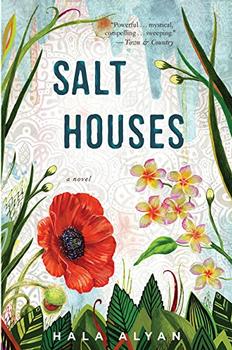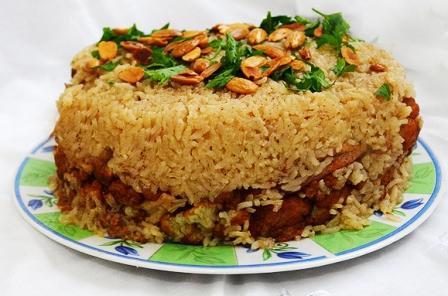Summary | Excerpt | Reading Guide | Discuss | Reviews | Beyond the book | Read-Alikes | Genres & Themes | Author Bio

From a dazzling new literary voice, a debut novel about a Palestinian family caught between present and past, between displacement and home.
On the eve of her daughter Alia's wedding, Salma reads the girl's future in a cup of coffee dregs. She sees an unsettled life for Alia and her children; she also sees travel, and luck. While she chooses to keep her predictions to herself that day, they will all soon come to pass when the family is uprooted in the wake of the Six-Day War of 1967.
Salma is forced to leave her home in Nablus; Alia's brother gets pulled into a politically militarized world he can't escape; and Alia and her gentle-spirited husband move to Kuwait City, where they reluctantly build a life with their three children. When Saddam Hussein invades Kuwait in 1990, Alia and her family once again lose their home, their land, and their story as they know it, scattering to Beirut, Paris, Boston, and beyond. Soon Alia's children begin families of their own, once again navigating the burdens (and blessings) of assimilation in foreign cities.
Lyrical and heartbreaking, Salt Houses is a remarkable debut novel that challenges and humanizes an age-old conflict we might think we understand - one that asks us to confront that most devastating of all truths: you can't go home again.
Readers travel through each section of the narrative – from country to country – with a different family member. The story jumps forward in time, often skipping years, to coincide with significant events, both historical and familial, which keeps the storytelling compelling and intriguing. In this way, writer Hana Alyan creates a unique perspective of the effect of political conflict on families. Rather than bringing readers to the brutality of war, we bear witness to the separation of a family from its roots, placing us inside the heart of one particular family...continued
Full Review
 (796 words)
(796 words)
(Reviewed by Claire McAlpine).
 War and political divisions are not the only reasons for people living in exile from their families, but they are often why people must leave in haste and abandon everything behind them. Sometimes homes are destroyed by war or, as with Alia's parents in Hala Alyan's novel Salt Houses, they are occupied following invasion. What can these people take with them even as they are forced to leave all tangible things behind? One thing is the memory of their favorite dishes and, wherever they make their home, they do what they can to reconstruct the classic dishes of their culture, and of their family tradition. Grandmothers and mothers hand down recipes to their daughters, who participate in the rituals and preparations of these ...
War and political divisions are not the only reasons for people living in exile from their families, but they are often why people must leave in haste and abandon everything behind them. Sometimes homes are destroyed by war or, as with Alia's parents in Hala Alyan's novel Salt Houses, they are occupied following invasion. What can these people take with them even as they are forced to leave all tangible things behind? One thing is the memory of their favorite dishes and, wherever they make their home, they do what they can to reconstruct the classic dishes of their culture, and of their family tradition. Grandmothers and mothers hand down recipes to their daughters, who participate in the rituals and preparations of these ...

If you liked Salt Houses, try these:

by Amira Ghenim
Published 2025
A finalist for the 2021 International Prize for Arabic Fiction, a compelling saga of two families that illuminates the lives of women in modern Tunisia.

by Hala Alyan
Published 2024
From the author of The Arsonists' City and The Twenty-Ninth Year, a new collection of poetry that traces the fragmentation of memory, archive, and family–past, present, future–in the face of displacement and war.